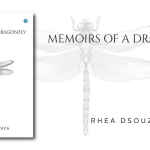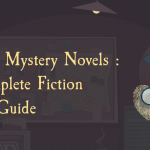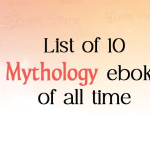Writing a book is a fulfilling experience that lets you impart your knowledge, insights, and experiences to a global audience. Aspiring writers in the United Kingdom have a distinct environment because of the country’s rich literary heritage and varied readership. The effect of your work can be increased by knowing the subtleties of writing for a UK audience, regardless of experience level.
We will explore the crucial processes of creating a book in the UK in this extensive guide, which is specifically designed to appeal to readers in this area. Every stage, from the first ideation to the final polish of your manuscript, is essential to writing a book that will captivate UK readers.
Read: List of top 10 most Famous Self-Published Books in UK – 2024
Regardless of your writing genre—fiction or non-fiction, traditional or self-published—this guide will teach you the skills and knowledge you need to successfully manage the writing process. Now, pick up your pen or turn on your laptop, and let’s go on this literary journey!
- Choosing a Topic
The first step in creating a book is to choose an engaging subject. Think about your hobbies, areas of experience, and the requirements of your intended UK audience. Look at industry gaps and current trends to identify a distinctive angle that will draw readers in. Your choice of topic should support your writing objectives and be interesting and pertinent. - Research and Planning
Writing a well-informed and engaging book requires extensive research. Collect data from dependable sources, investigate various viewpoints, and arrange your discoveries. Make a thorough outline that includes the main ideas, chapters, and a completion schedule for your book. Planning will assist you in maintaining organisation and attention while writing - Establishing Writing Goals
Keeping writing momentum and motivation high requires the establishment of specific, attainable writing goals. Decide how many pages or words you want to write every day or every week. Divide the overall objective of finishing the book into smaller, more doable tasks. You may monitor your development with this method and acknowledge minor accomplishments along the way - Starting with Cursive Writing
Using a cursive writing style might help increase writing speed and inventiveness. It makes it possible for thoughts to flow more freely and continuously, which is especially advantageous while generating ideas and in the initial phases of book drafting. Try writing in cursive to see if it makes writing easier and allows you to come up with ideas more quickly. - Content Writing
Writing content for a book entails coming up with interesting and educational ideas that your readers will find interesting. Put your attention on offering insightful commentary, engrossing tales, and concise concept transmission. Make sure your material is organised and easy to read, and use a tone and style that appeal to your target audience in the UK. Use stories, research, and pertinent examples to bolster your arguments and improve the book’s overall quality - Writing a Thesis
Creating a thesis for your book entails outlining a succinct and convincing case or central notion that you will investigate and bolster throughout the publication. To give readers a clear idea of the goal and scope of your work, your thesis should be precise, unique, and pertinent to your subject. To bolster your case and draw readers in, include proof, analysis, and research to back up your claim. - Story writing
Writing stories is the art of creating engrossing and entertaining narratives. Whether you write fiction or non-fiction, storytelling is essential to producing a book that readers will remember and find impactful. Develop well-rounded characters, conjure up a vivid setting, and develop a compelling plot that will hold readers’ attention from start to finish. Use sensory details and descriptive language to make your story come to life. Incorporate elements of conflict, tension, and resolution to sustain readers’ interest. - Rewriting and editing
The writing process requires you to refine and polish your text through the phases of rewriting and editing. When you’re rewriting, concentrate on making your writing more coherent, clear, and fluid. Cut out superfluous words, reword awkward sentences, and make sure your thoughts are communicated clearly and rationally. Editing entails proofreading for spelling, grammar, and punctuation mistakes, in addition to formatting problems. To find areas for improvement and make sure your work is polished and ready for publishing, think about asking beta readers or experienced editors for their opinions. - Writing Descriptively
By evoking vivid descriptions of your scenarios, people, and surroundings, you arouse readers’ emotions and senses. Your audience will have a deep, immersive experience if you use sensory elements and colourful language. To create a strong feeling of place and atmosphere, describe the sights, sounds, tastes, smells, and textures. Writing well-described passages gives your narrative additional depth and realism, which increases the appeal and recall value of your work. - Writing Reflectively
Writing reflectively entails self-reflection and examination of your ideas, encounters, and educational journey. Explore your development, new perspectives, and feelings around your writing journey through reflective writing. Throughout the writing process, consider the difficulties you’ve encountered, the lessons you’ve learned, and the changes you’ve gone through. Writing reflectively can help you become a better writer and improve your ability to meaningfully connect with readers. - Instances of creative writing
Examining instances of creative writing might help you get ideas and guidance for your work. Read a range of literary works to broaden your perspectives and pick up new skills. Examine how writers craft engrossing stories by utilising language, structure, and storytelling techniques. To improve your creative writing, pay attention to narrative voice, character development, and plot twists. You might get useful tips and ideas for your writing endeavours by looking at examples of creative writing. - Getting Feedback
Consulting with other people to get their opinions on your writing can help you make it better and see it from new angles. Give your manuscript to writing groups, beta readers, or professional editors for helpful feedback and suggestions on how to make it better. Be receptive to criticism and prepared to make changes in response to it. You may find blind spots, improve your ideas, and polish your text to a polished standard by asking for input. - Publishing Options
There are a few things to think about when it comes to getting your book published. In a traditional publishing setting, your book is sent to publishers or literary agents for review. With self-publishing, you can use services like IngramSpark or Amazon Kindle Direct Publishing to independently publish your book. Combining the best aspects of self-publishing and traditional publishing, hybrid publishing gives you more control over the publishing process while still offering expert assistance. - Book Promotion
To reach your intended audience and spark interest in your writing, you must promote your book. To generate interest in and a readership for your book, make use of author websites, social media, and book promotion services. Think about arranging online or live book launches, taking part in podcasts or author interviews, and contacting book bloggers and reviewers to gain visibility. To build a relationship and boost book sales, interact with your fans, provide behind-the-scenes looks at your writing process, and provide exclusive content or promos. By properly promoting your book, you can increase its impact and attract a larger readership.
Writing a book in the UK is a rewarding experience that provides authors with the chance to interact with a wide range of readers and establish connections with a thriving literary community. The methods described in this handbook will help you write a book that appeals to readers not just in the UK but also internationally. Every stage of the process, from ideation to final editing and promotion, is critical to the success of your book.
Read: What is author’s royalty? How much do authors earn money by publishing in 2024?
Keep in mind that writing a book is a journey and that you get closer to your destination with every word you write. Thus, accept the process, be honest with yourself, and tell the world your tale. Your book can enlighten, inspire, and amuse readers. If you work hard and are persistent, it can also have a significant influence on the UK literary scene.
BlueRose Publishers is a self-publishing platform where anyone with the dream of becoming a writer can come and achieve their dreams. You will always be welcomed here always.
Publish your book with BlueRoseONE and become a bestselling author. Don’t let your dream of becoming an author fade away, grab the opportunity now and publish your book – be it fiction, non fiction, poetry or more.














